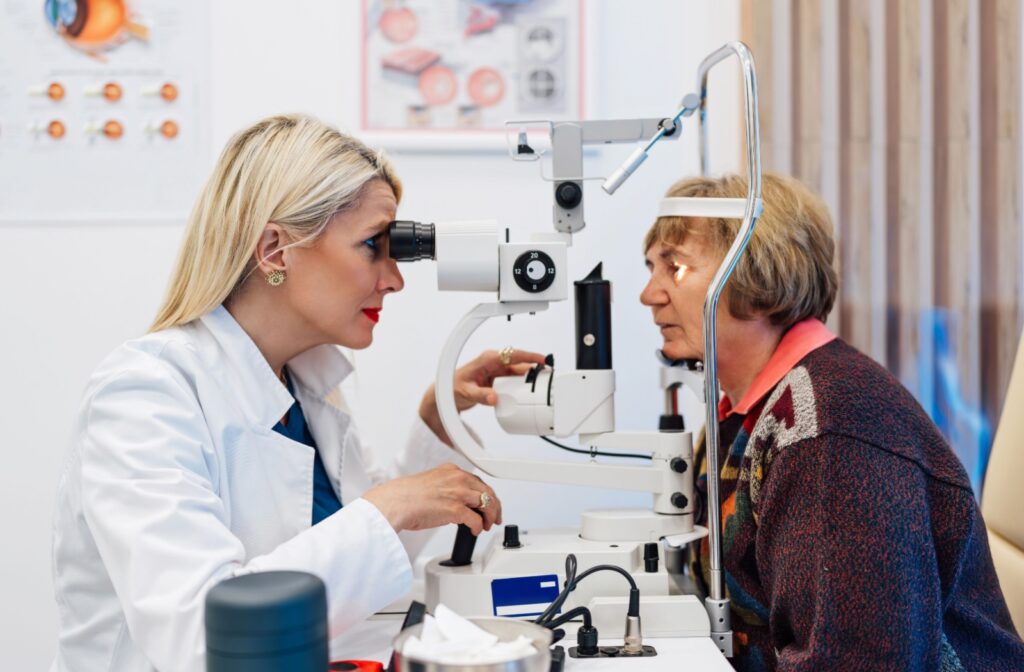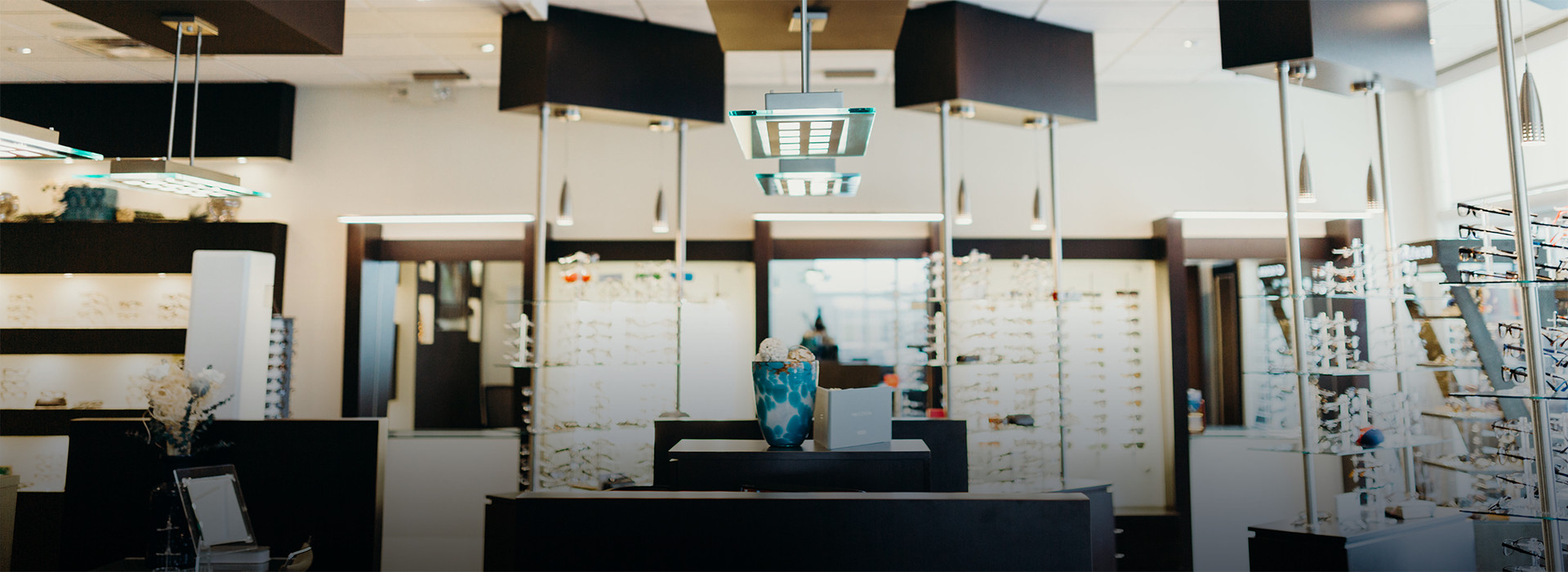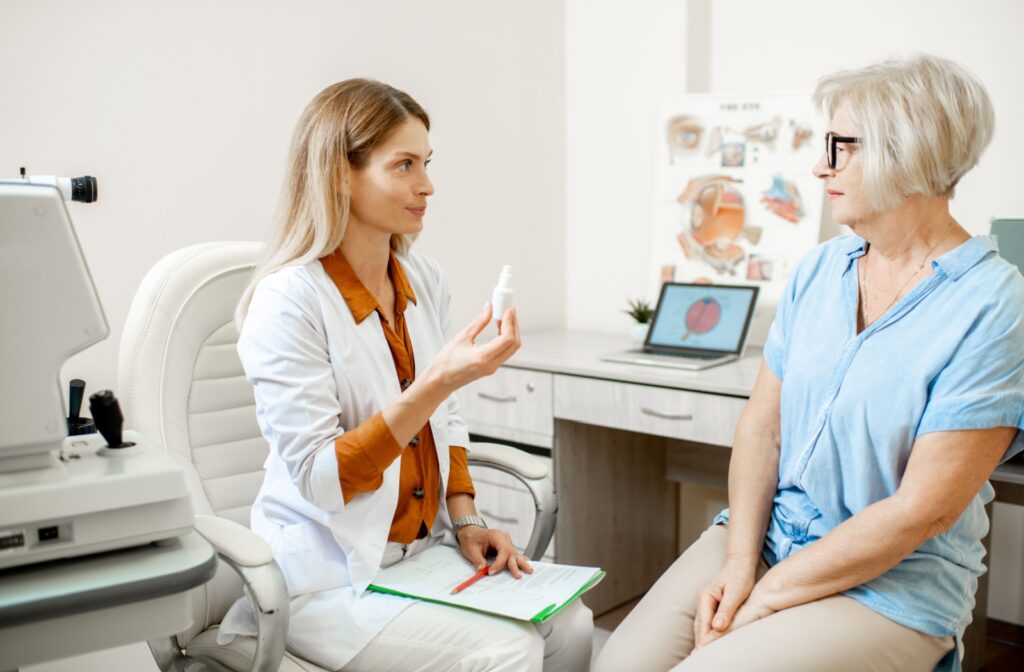The human eye is complicated, and eye exams can reveal all kinds of valuable information. This means proper eye care is an important part of overall eye health. These exams are key to protecting your eyes and overall well-being, and during them, your optometrist may dilate your pupils to closely examine the inner workings of your eye.
Dilation isn’t always necessary during an eye exam. However, if your eyes are dilated, we may recommend wearing sunglasses afterward. Without sunglasses, dilation can lead to discomfort, light sensitivity, and eye strain. We will also offer advice on driving after getting your eyes dilated and may give you other post-exam instructions to follow after your visit.
What to Expect at Your Next Eye Exam
A comprehensive eye exam involves more than just checking vision. It takes an in-depth look at your overall eye health. These exams are designed to detect everything from nearsightedness to more complex concerns like retinal detachment.
During the exam, your optometrist will perform several common tests. These will likely include:
- Visual acuity test: This measures your clarity of vision at various distances.
- Refraction assessment: This determines your correct prescription for glasses or contact lenses.
- Pressure tests: This measures the pressure inside your eyes to detect signs of glaucoma.
- Slit lamp examination: This looks at the structure of your eyes, including the cornea and lens.
Why Do Optometrists Dilate Your Pupils?
Pupil dilation was once a very common part of comprehensive eye exams, but as technology has advanced, dilation has become less routine. When dilation is needed, it’s usually because it is required for an emergency, such as a situation involving retinal detachment.
Instead, many optometrists now use a technique called ultra-widefield retinal imaging, which provides a detailed view of the retina that is equivalent or nearly equivalent to what can be seen with dilation. Optomap is what we use for widefield imaging and is by far the most popular imaging device.
This view is invaluable for uncovering potential issues that might otherwise be hidden, including:
Is Pupil Dilation Safe?
Pupil dilation is still considered a safe practice. The drops used for dilation are designed to temporarily relax the muscles that control the size of your pupils. This allows them to open wider, giving your optometrist a better view inside your eye.
However, there may be some side effects. Because the drops open the pupil, they may cause symptoms like:
- Blurred vision
- Light sensitivity
- Difficulty focusing on nearby objects
Some people, like those with lighter eye colours, may experience stronger sensitivity to the drops. Regardless, these effects are temporary and tend to wear off within a few hours. You may need to follow some specific post-care instructions after your exam to protect your eyes against potential strain.

How Long Does Dilation Last?
The effects of dilation don’t last all day. However, you should plan ahead—you may experience a few hours of mild inconvenience. Most people notice their vision returns to normal within 4–6 hours. However, several factors can affect this timeframe:
- Aget: Dilation can last longer for younger people.
- Eye colour: Lighter eyes might stay dilated longer due to how the drops interact with pigmentation.
- Type of drops used: Some formulations prolong the effects of dilation.
- Health of the eyes: Certain eye conditions can change how long it takes for your pupils to recover.
Being prepared ahead of time can make the experience much easier. Remember—follow your optometrist’s advice at all times, and your symptoms should quickly recede.
Tips for Comfort After Dilation
Managing your comfort post-dilation can be easier than most people think. With the right precautions, you can prevent strain and discomfort as your pupils return to normal.
Here’s how you can protect your eyes afterward:
- Wear sunglasses, especially if exposed to bright lights or harsh environments. These protect you against bright light, headaches, discomfort, and more.
- Avoid driving until your vision returns to normal clarity. Arrange for a ride or use public transportation if necessary.
- Limit screen time, as bright screens can cause additional strain on your eyes. Consider taking a break from phones, computers, or TVs.
- Stay in dimly lit environments to reduce the discomfort caused by sensitivity to light.
- Use over-the-counter lubricating eye drops if your eyes feel dry or irritated. Be sure to select preservative-free drops for gentle hydration.
It’s always better to take simple precautions than to risk overexposure. By doing so, your eyes won’t have to work as hard when they’re vulnerable.
Book Your Next Eye Exam Today
Your eyes play such an important role in your daily life. Taking steps to maintain their health is worth it, and regular eye exams are a core part of this approach. Eye exams that include ultra-widefield imaging can help you get far ahead of eye conditions by detecting their early warning signs.
That’s where our team at Stonebridge Eyecare is happy to help! When you’re ready to give some attention to your eyes, contact us to book an appointment. Together, we can keep your eyes in great shape.










